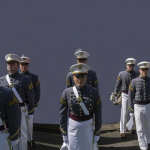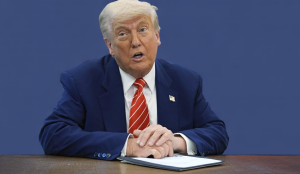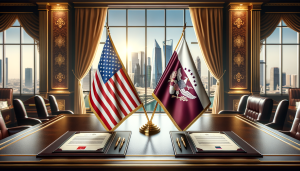Trump, citing national security concerns, signs new travel ban for 19 countries

Broadening the Travel Ban
On Wednesday, President Trump announced a substantial expansion of travel restrictions, imposing a full ban on 12 countries and a partial ban on an additional seven, due to concerns about the adequacy of their security measures and cooperation with U.S. deportation efforts. This move underscores his administration’s continuous commitment to national security.
Details of the Ban
The extensive ban affects most nonimmigrant visa categories for nationals from the fully restricted countries, while the partial ban limits access to tourist, student, and exchange visas for the countries listed as partially restricted. Despite these stringent measures, the policy includes exceptions for certain groups like green card holders, foreign adoptees, and athletes attending major events such as the World Cup or Olympics.
Countries Affected
The 12 countries facing the full ban include Afghanistan, Burma, Chad, the Republic of Congo, Equatorial Guinea, Eritrea, Haiti, Iran, Libya, Somalia, Sudan, and Yemen. Meanwhile, the partial restrictions impact Burundi, Cuba, Laos, Sierra Leone, Togo, Turkmenistan, and Venezuela. These nations have been identified due to their insufficient security procedures, reluctance to cooperate with the U.S on deportation matters, and tendencies of their citizens to violate U.S. immigration laws.
Rationale Behind Reinforced Bans
President Trump emphasized that the targeted countries are “deficient” in their screening processes and often fail to collaborate with the U.S. in repatriating their nationals. He pointed out that his administration must prioritize the safety of its citizens and the protection of the nation from foreign threats, including terrorism and non-compliance with immigration laws.
Previous Ban and Ongoing Commitment
|
Reflecting on the travel ban from his first presidential term, Trump highlighted its effectiveness in safeguarding American borders against security threats. This previous ban, sometimes mischaracterized as a “Muslim ban,” was ultimately upheld by the Supreme Court after some adjustments. Today’s announcement appears to address past challenges and improve the precision of the countries targeted based on clear security concerns and lack of cooperation.
Criticism and Defense
While immigration advocacy groups have harshly criticized the new bans, labeling them as “racist” and overly focused on Muslim and African nations, President Trump stands firm. He defended the policy as a necessary action to protect the United States, pointing to the need for stringent measures when foreign governments fail to meet baseline security standards.
President Trump concluded by stating, “As president, I must act to protect the national security and national interest of the United States and its people,” reinforcing his unwavering stance on using travel restrictions as a tool for maintaining the country’s safety amidst global challenges.









No Comments